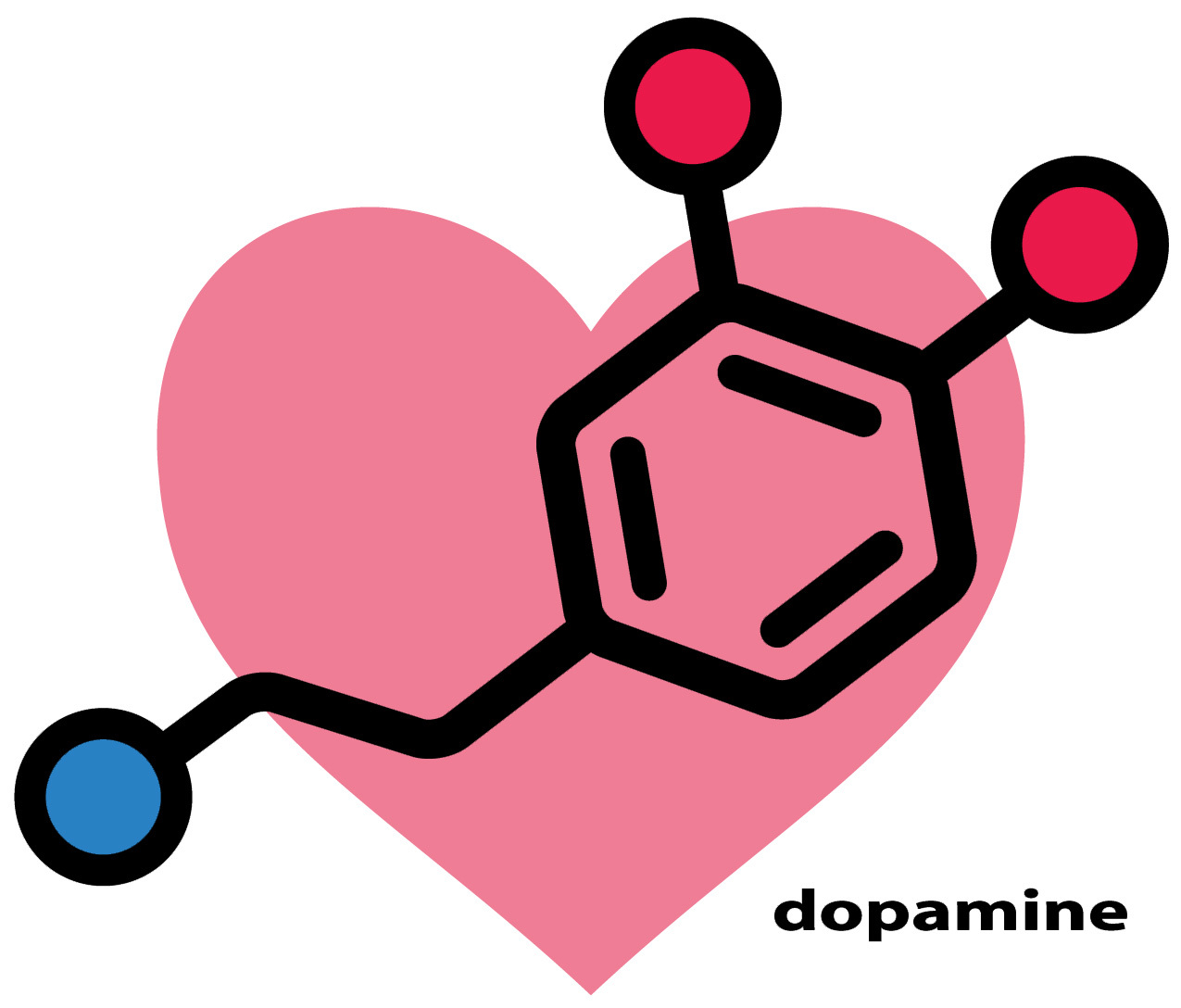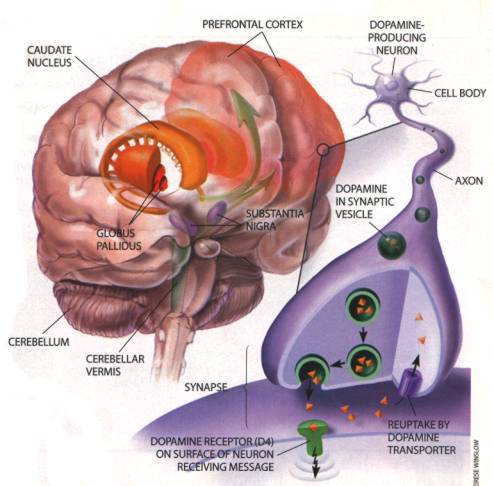Find out your Dopamine levels with Sanesco HPA Profile
See Procite D, Sanesco's Dopamine supplement
How understanding dopamine in the brain may keep the love songs flowing in your relationship

It is February-the month of love. Even if you want to avoid Valentines Day like the plague, reflecting on love this month could be beneficial to your relationship.
Oh Baby I Love Your (Path)Way
It is widely accepted that dopamine, a neurotransmitter, is deeply involved in our bodies system of motivation, pleasure and reward. Dopamine travels along several different pathways in the brain, it travels a route specifically related to pleasure and reward called the mesolimbic pathway. The mesolimbic pathway begins in the ventral tegmental area of the brain and spans through the Nucleus Accumbens of the brain to the limbic system. When dopamine is released into the pathway after engagement in a particular activity, we feel emotions of pleasure and reward. The next time we intend on doing the same activity or we do the same activity, our memory of the feelings of pleasure comes to surface and we are motivated to engage in the activity again.3 (Who doesn’t want to engage in an activity that feels good?!)

What’s Love Got To Do With It?
Relationships are innately tied to the mesolimbic system- we wouldn’t seek out evolutionary beneficial relationships unless it was pleasurable for us. If pleasure is not a part of our relationships, there is little motivation to be in them, and thus no motivation to pro-create or perpetuate our species. Studies that utilized fMRI scans show dopamine running rampant through the mesolimbic pathway when we fall in love. As the dopamine is pulsing, intense feelings of reward and pleasure are created in our brain and bodies. As the newness of our relationship begins to wear off, so does the amount of dopamine running through the mesolimbic pathway.5,6 The dopamine-rush in the brain explains the excitement of a new relationship-but what do we do when the excitement wears off?
I Will Always Love You
Don’t get too discouraged, these feelings don’t always dissipate in long term relationships. A study sought out partners who were in long-term relationships (greater than 10 years) that described themselves as madly in love. When these partners were shown pictures of their significant others, the mesolimbic pathway lit up, just like it would for those newly in love.1
Lets Stay Together
You, too, can feel like a newly-in-love partner. Try a new and exciting adventure with your significant other-a scary movie, a hike, visiting a new restaurant. Novel, or new, activities are shown to light up your mesolimbic pathway. Sharing these exciting adventures with your babe can increase relationship satisfaction and positive feelings towards the relationship. 2,4
References
1) Acevedo BP, Aron A, Fisher HE, Brown LL. (2011) Neural correlates of long-term intense romantic love. Social Cognition and Affective Neuroscience. doi: 10.1093/scan/nsq092 First published online: January 5, 2011
2) Aron, A., Norman, C. C., Aron, E. N., & Lewandowski, G. (2002). Shared participation in self-expanding activities: Positive effects on experienced marital quality. In P. Noller & J. A. Feeney (Eds.), Understanding marriage: Developments in the study of couple interaction (pp. 177-194). New York: Cambridge University Press.
3) “Brain Reward Pathways.” Icahn School of Medicine | Neuroscience Department | Nestler Lab | Brain Reward Pathways. N.p., n.d. Web. 10 Sept. 2013.
4) Coulter, K., & Malouff, J. M. (2013). Effects of an intervention designed to enhance romantic relationship excitement: A randomized-control trial. Couple and Family Psychology: Research and Practice, 2(1), 34.
5) Fisher, H., Aron, A., & Brown, L. L. (2005). Romantic love: an fMRI study of a neural mechanism for mate choice. Journal of Comparative Neurology, 493(1), 58-62.
6) Xu, X., Aron, A., Brown, L., Cao, G., Feng, T., & Weng, X. (2011). Reward and motivation systems: A brain mapping study of early‐stage intense romantic love in Chinese participants. Human Brain Mapping, 32(2), 249-257.
